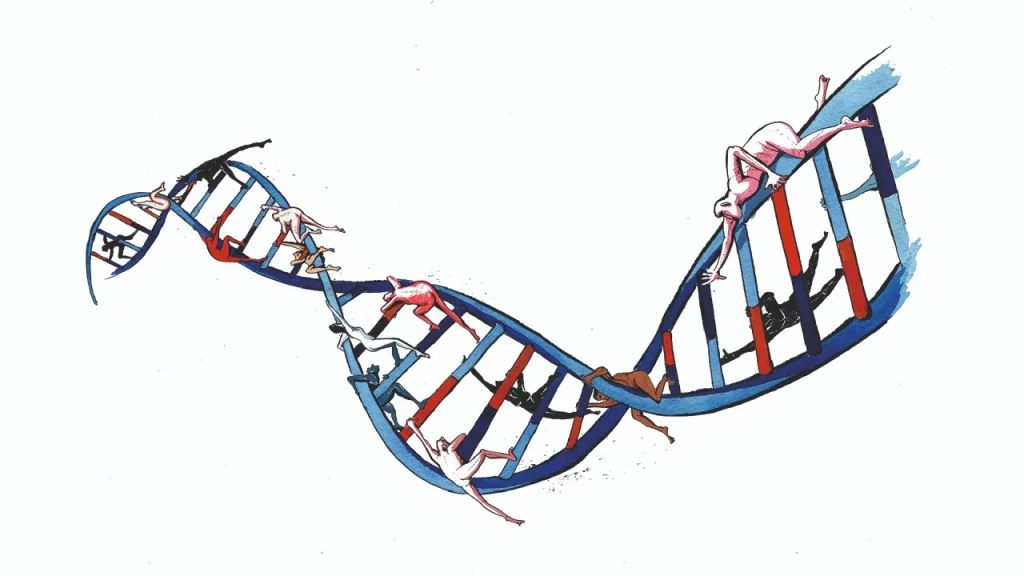They tried, they really did. Dignity in Dying, the lineal descendent of the 1930s Euthanasia Society and therefore great-great-niece of its sister the Eugenics Society, has been struggling for weeks to frame a bill that’s innocuous enough to pass through parliament. Today we saw the fruit of their efforts.
The Terminally Ill Adults (End of Life) Bill has ‘the most stringent safeguards in the world’, says its sponsor, Kim Leadbetter MP. It’s only for the sickest people with less than six months to live; you need two doctors and a judge to confirm you’re really dying and really want to end it all early; you have to commit ‘the final act’ by administering ‘the approved substance’ yourself.
There is a reason that, since the dawn of the Christian era, infanticide, euthanasia and eugenics have been banned
But it doesn’t work. Even on its own terms the bill will fail to stop people with chronic conditions or mental health problems – including eating disorders – from seeking state aid to commit suicide. No doctor can accurately predict death six months hence. Anyone with a long-term illness who needs treatment to stay alive can qualify by refusing their drugs (or an anorexic by refusing their food) and shopping around until they find a pair of doctors to confirm they are now terminal.
The bill allows a doctor to ‘assist’ the ‘final act’ – lift the pills to your mouth or press your finger on the syringe. This is a hairsbreadth from euthanasia on demand, the actual object of the century-long campaign to overturn the most basic imperatives placed on doctors: ‘do not kill’.
Did I say ‘doctor’? In fact the bill doesn’t even require this, merely a ‘medical practitioner’, to be defined in due course once the bill is law. So we can expect nurses, pharmacists or, in time – for here the gruesome logic leads – specialist professionals trained in the administration of the lethal dose, no doubt operating out of specialist clinics conveniently located by the old people’s home.
The bill explicitly authorises ‘medical practitioners’ to suggest assisted suicide – cleaner, cheaper, so much kinder than expensive, messy, painful bed-blocking – even if the patient has never mentioned the idea. Meanwhile it explicitly requires doctors who do not want to kill their patients to refer them to someone who does.
It also allows a ‘proxy’ – either someone you’ve known for two years, or someone ‘of good standing in the community’ (the neighbourhood assisted death advisor, perhaps; a colleague of the ‘practitioner’ in the suicide clinic) – to organise everything, including signing all the papers on your behalf. And it puts no requirement on anyone to tell the family of the depressed, suicidal patient that the NHS is about to kill them.
Of course, the bill’s backers stress its limited scope. Ms Leadbetter claims only a few hundred people a year will avail themselves of this new NHS service. If those were the only people Dignity in Dying had in view, of course, they’re wasting a lot of time and effort trying to change the law. For a fraction of the budget they spend on campaigning, they could give a few hundred people a year the airfare to Switzerland and the fees for Dignitas.
The purpose of this bill, and the avowed ambition of its less discreet supporters who keep letting the cat out of the bag, is to establish the principle that the patient has the right to summon the state to take their life. And indeed this is the ineluctable logic of the bill, and the culmination of the argument that people need ‘choice’ at the end.
The minute this bill is passed there will be – indeed, there are already are – calls to widen its scope. A new human right will have been established, and human rights are universal. Every safeguard in the new law, like the ban on people seeking death because of a mental illness, or because they have a long-term but not terminal condition, would instantly become a barrier to the ‘right to die’. The European Convention would be invoked, and that, as we know, is holy writ.
It’s good we are debating this topic. The bill we now have to examine is so ghastly in its text – I pity the parliamentary drafters who had to write it – that surely people will see this is not the road to embark upon. There is a reason that, since the dawn of the Christian era, infanticide, euthanasia and eugenics have been banned. We face a great new darkness here, masquerading as an angel of light. I trust my colleagues in parliament will see it for what it is.
Watch the debate on Spectator TV:







Comments